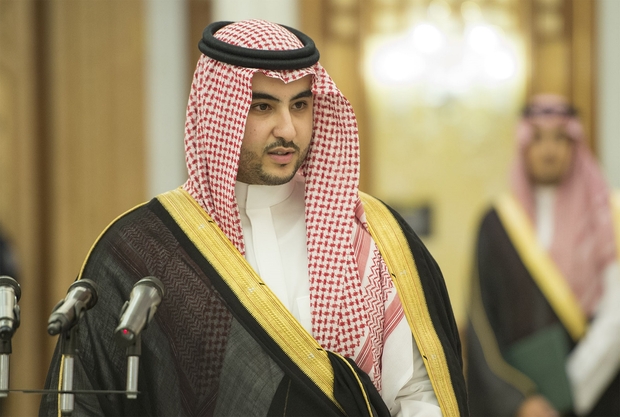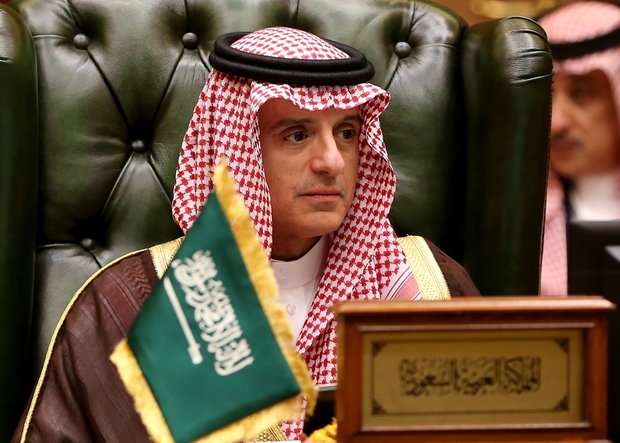Alwaght- Saudi Arabia has reportedly fired foreign minister Adel al-Jubeir on Friday.
Several media outlets, including Al-Masdar News, reported that Jubeir was replaced by Khaled bin Salman, the crown prince’s younger brother
Middle East Eye also cited an unnamed diplomatic source as confirming the royal decision.
The Saudi government has yet to comment on the reports.
Prince Khaled is currently Riyadh’s ambassador to the US. He was trained at Columbus Air Force Base in Mississippi and has been an F-15 pilot in the Saudi air force.

Prince Khaled, Mohammed bin Salman's younger brother, is currently Riyadh’s ambassador to the United States
Saudi Arabia's foreign policy has come under rare criticism from Washington in recent days.
US Secretary of State Rex Tillerson called on Washington's oil-rich ally to be "thoughtful" about “the consequences” of its actions in the West Asia.
"With respect to Saudi Arabia's engagement with Qatar, how they're handling the Yemen war that they're engaged in, the Lebanon situation, we would encourage them to be a bit more measured and a bit more thoughtful in those actions to, I think, fully consider the consequences," Tillerson said on Friday.
In Yemen, Saudi Arabia and its allies launched a bloody military campaign early in 2015 and have, ever since, been ceaselessly pounding the country in an attempt to reinstall a former regime allied to Riyadh.
The Saudi-led coalition has also maintained an embargo on the country where, so far, over 13,000 civilians have been reportedly killed.
Riyadh tightened that embargo after a retaliatory missile attack from Yemen early in November. The Saudi regime has claimed that it has partially loosened that embargo in the face of massive international outcry.
The remarks by Tillerson come even as the US has itself been contributing to the Saudi-led war on Yemen both directly, through intelligence sharing and logistical support, and indirectly, with the sale of billions of dollars’ worth of arms to the Saudi regime.
Earlier in May, Tillerson’s boss, US President Donald Trump, signed a 350-billion-dollar arms deal with Riyadh.
Publicly, however, and as the Saudi-led atrocities in Yemen draw more attention, the US has been calling for Saudi restraint.
Earlier this week, Trump directed aides to urge Saudi leaders to immediately end the kingdom’s blockade on Yemen, a demand Tillerson renewed Friday by calling for its “complete end.”
The White House also issued a statement on the same day, urging the Saudis to facilitate the free flow of humanitarian aid to all of Yemen's ports and through the Sana'a airport.
In addition, a senior Trump administration official, who spoke on condition of anonymity, said, "We wanted to be very clear with Saudi officials that the political environment here could constrain us if steps aren’t taken to ease humanitarian conditions in Yemen."
In Qatar, Saudi Arabia has led the United Arab Emirates, Bahrain, Egypt and other neighbors in enforcing a blockade of the tiny nation on allegations that Doha supports terrorism and is too close to Iran. Qatar has vehemently rejected the claims.
In Lebanon, Saudi Arabia is widely believed to have coerced Lebanese Prime Minister Saad Hariri into stepping down and put him under house arrest.
On November 4, Hariri stunned Lebanon and the region by announcing his resignation in a live television broadcast from Saudi Arabia. He accused Iran and Hezbollah of sowing strife in the Arab world, an allegation rejected by both sides.
However, he returned to Lebanon on November 22 and eventually rescinded his resignation on December 5 following a deal reached with rival political parties at the end of the first cabinet meeting.



























